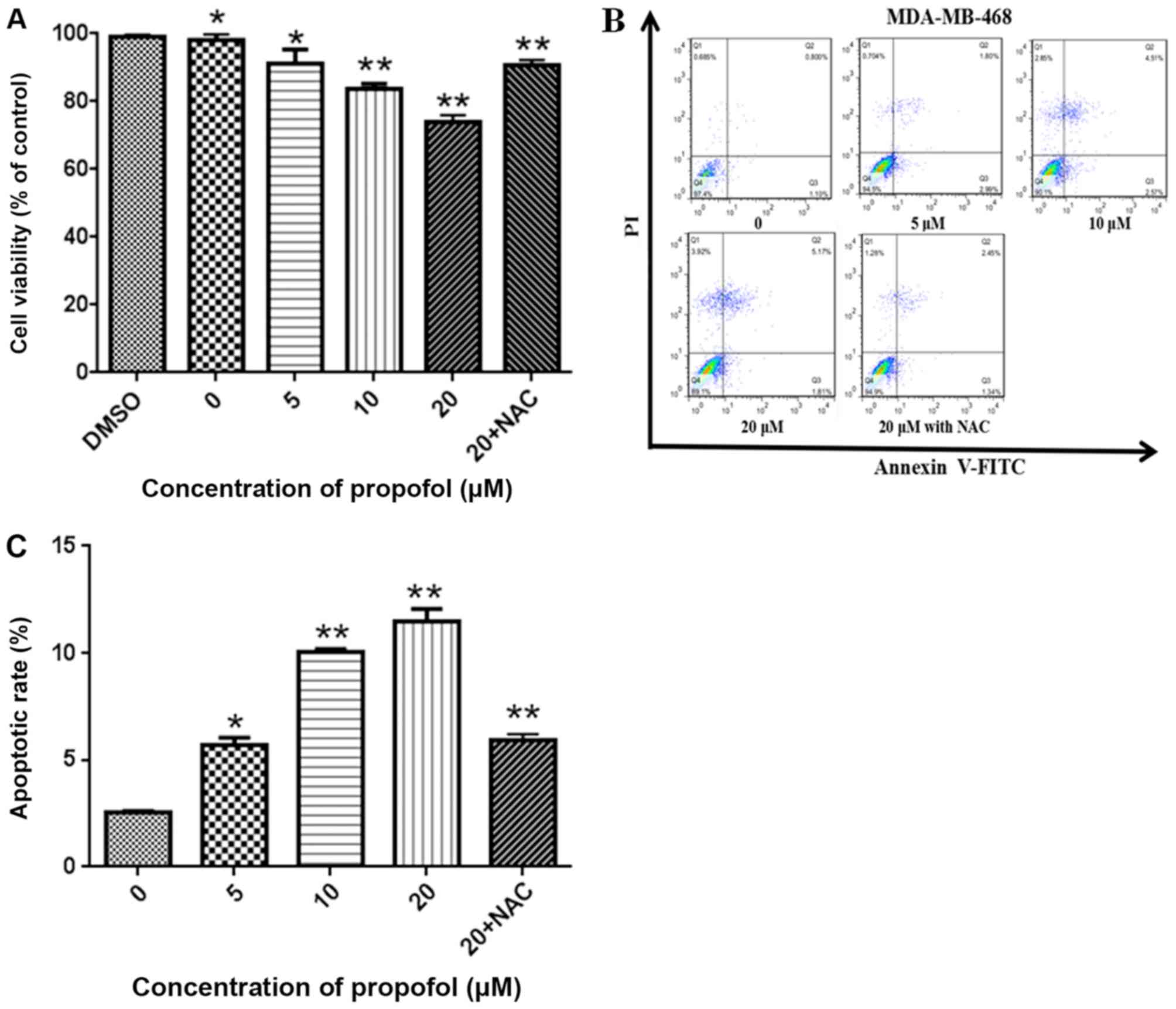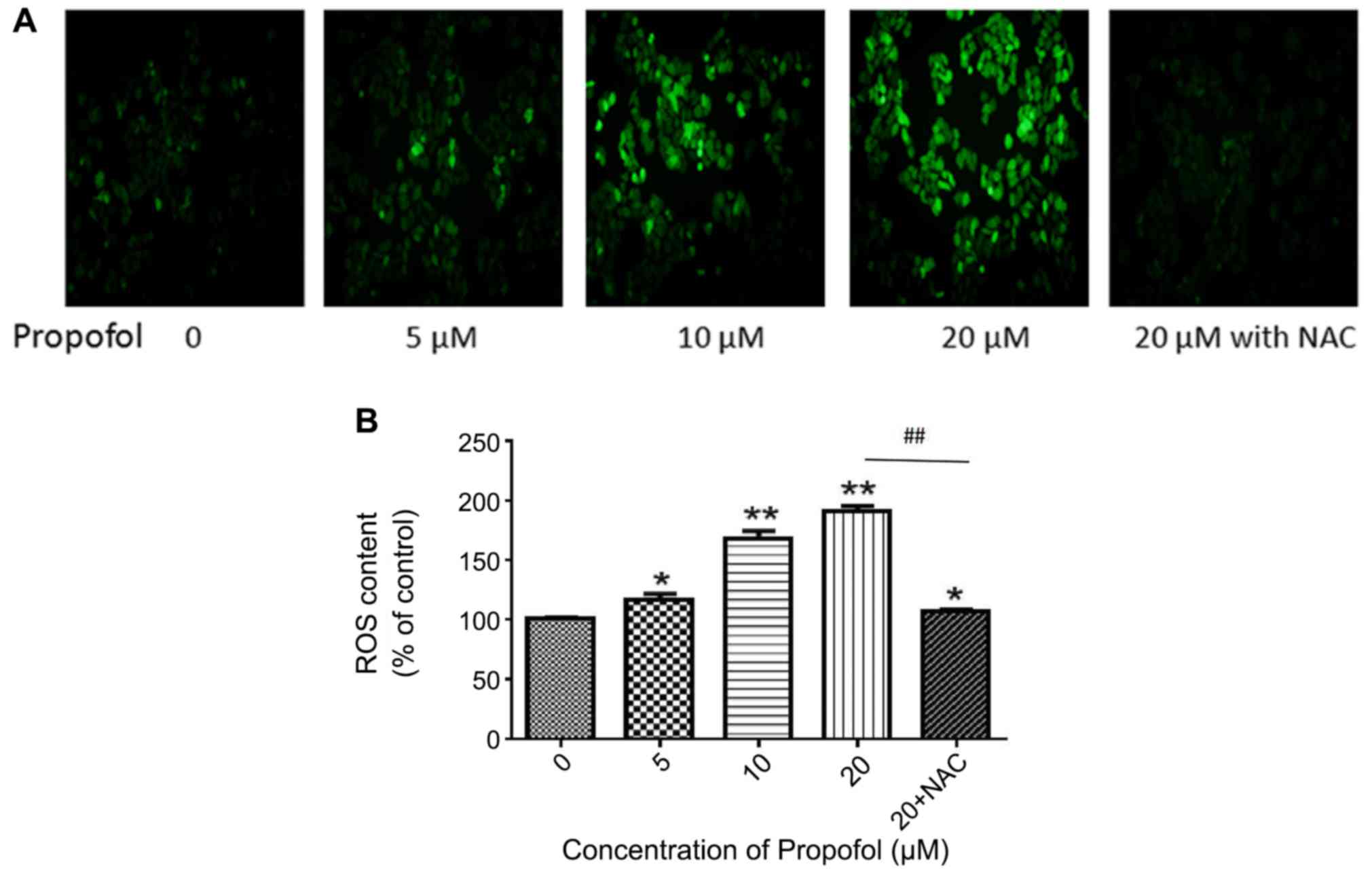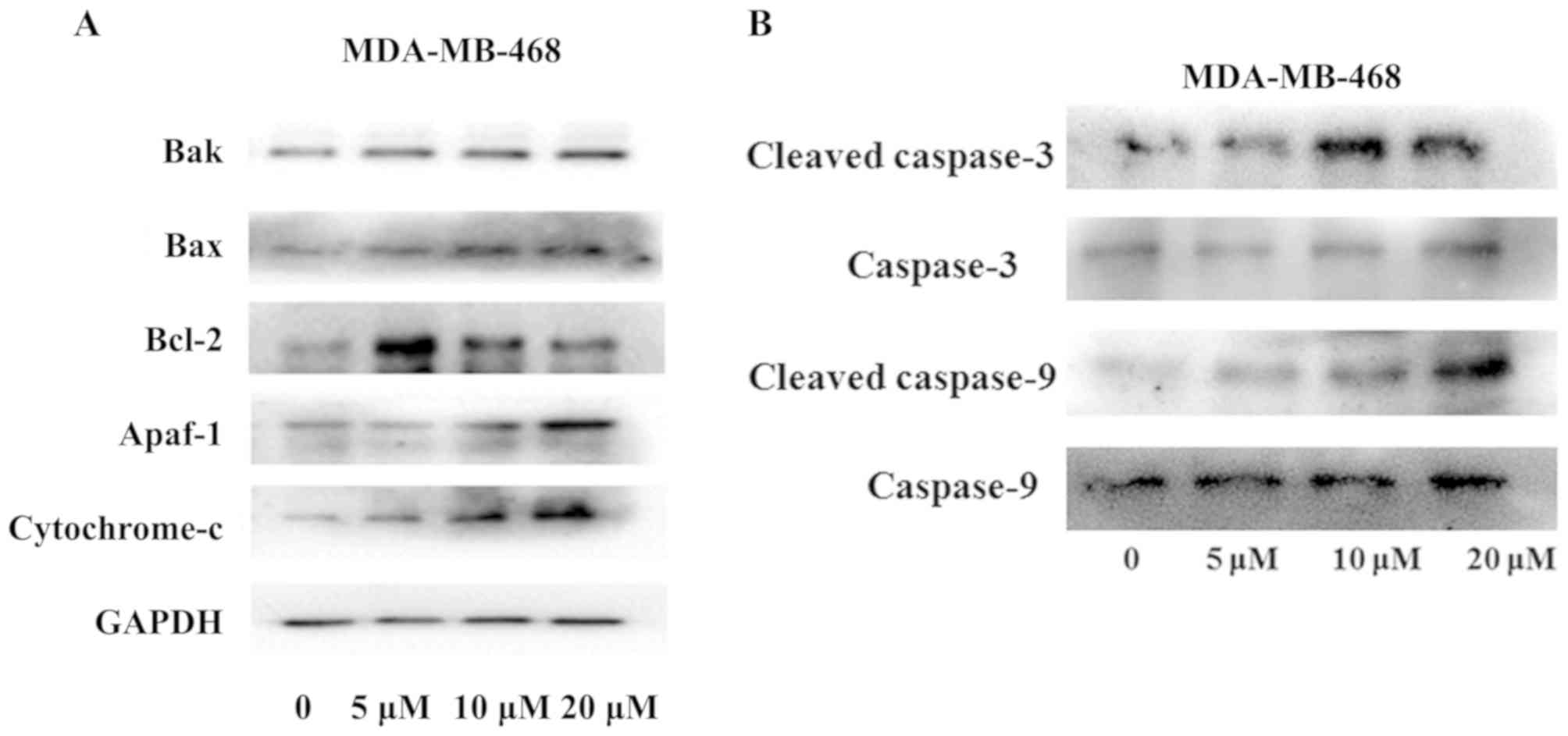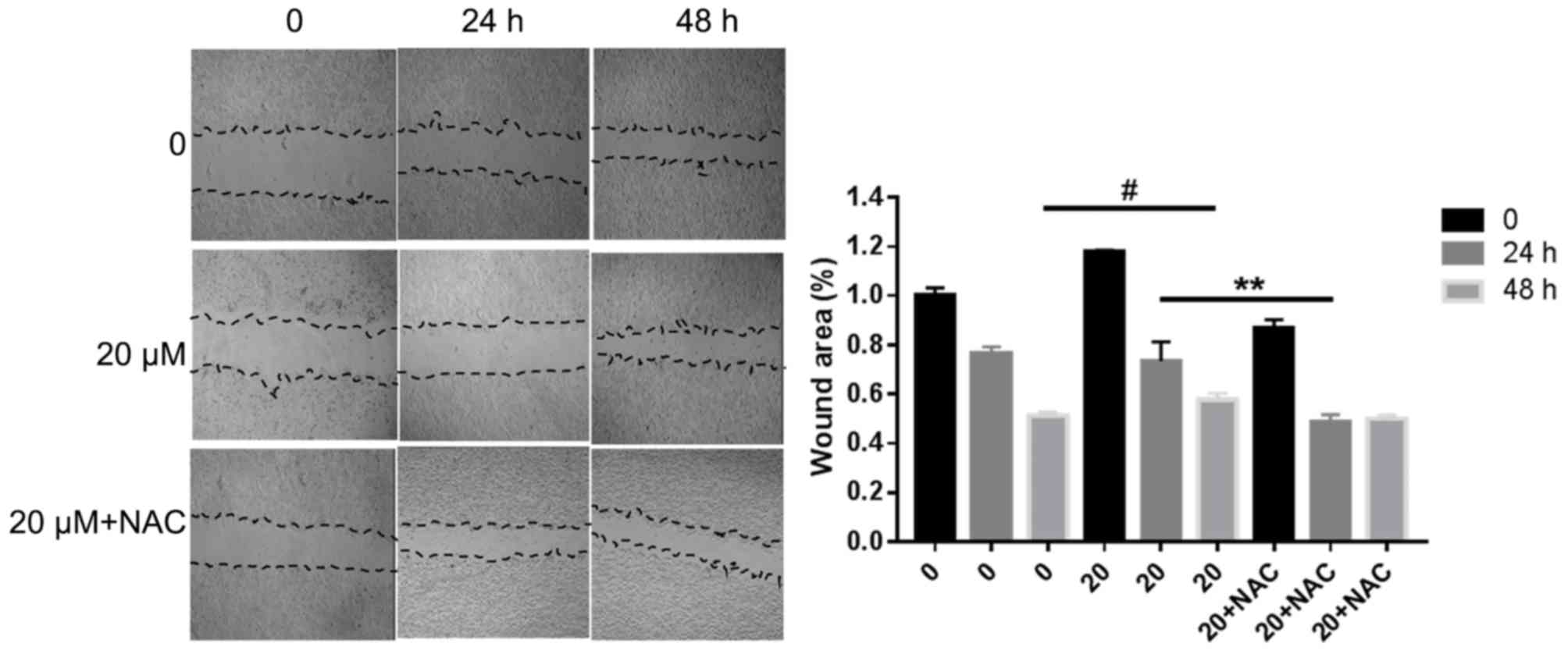|
1
|
Ha GH, Kim DY, Breuer EK and Kim CK:
Combination treatment of polo-like kinase 1 and tankyrase-1
inhibitors enhances anticancer effect in triple-negative breast
cancer cells. Anticancer Res. 38:1303–1310. 2018.PubMed/NCBI
|
|
2
|
Wahdan-Alaswad R, Fan Z, Edgerton SM, Liu
B, Deng XS, Arnadottir SS, Richer JK, Anderson SM and Thor AD:
Glucose promotes breast cancer aggression and reduces metformin
efficacy. Cell Cycle. 12:3759–3769. 2013. View Article : Google Scholar : PubMed/NCBI
|
|
3
|
Yardley DA, Brufsky A, Coleman RE, Conte
PF, Cortes J, Gluck S, Nabholtz JM, O'Shaughnessy J, Beck RM, Ko A,
et al: Phase II/III weekly nab-paclitaxel plus gemcitabine or
carboplatin versus gemcitabine/carboplatin as first-line treatment
of patients with metastatic triple-negative breast cancer (the
tnAcity study): Study protocol for a randomized controlled trial.
Trials. 16:5752015. View Article : Google Scholar : PubMed/NCBI
|
|
4
|
Lukong KE, Ogunbolude Y and Kamdem JP:
Breast cancer in Africa: Prevalence, treatment options, herbal
medicines, and socioeconomic determinants. Breast Cancer Res Treat.
166:351–365. 2017. View Article : Google Scholar : PubMed/NCBI
|
|
5
|
Abdulrahman GJ Jr and Rahman GA:
Epidemiology of breast cancer in europe and Africa. J Cancer
Epidemiol. 2012:9156102012. View Article : Google Scholar : PubMed/NCBI
|
|
6
|
Aziz H, Hussain F, Sohn C, Mediavillo R,
Saitta A, Hussain A, Brandys M, Homel P and Rotman M: Early onset
of breast carcinoma in African American women with poor prognostic
factors. Am J Clin Oncol. 22:436–440. 1999. View Article : Google Scholar : PubMed/NCBI
|
|
7
|
Cao J, Chen Z, Chi J and Sun Y and Sun Y:
Recent progress in synergistic chemotherapy and phototherapy by
targeted drug delivery systems for cancer treatment. Artif Cells
Nanomed Biotechnol. 46:817–830. 2018. View Article : Google Scholar : PubMed/NCBI
|
|
8
|
Wilson TR, Udyavar AR, Chang CW, Spoerke
JM, Aimi J, Savage HM, Daemen A, O'Shaughnessy JA, Bourgon R and
Lackner MR: Genomic Alterations Associated with recurrence and TNBC
subtype in high-risk early breast cancers. Mol Cancer Res.
17:97–108. 2019. View Article : Google Scholar : PubMed/NCBI
|
|
9
|
Kay B and Rolly G: I.C.I. 35868, a new
intravenous induction agent. Acta Anaesthesiol Belg. 28:303–316.
1977.PubMed/NCBI
|
|
10
|
Dietrich SK, Mixon MA, Rogoszewski RJ,
Delgado SD, Knapp VE, Floren M and Dunn JA: Hemodynamic effects of
propofol for induction of rapid sequence intubation in
traumatically injured patients. Am Surg. 84:1504–1508.
2018.PubMed/NCBI
|
|
11
|
Vasileiou I, Xanthos T, Koudouna E, Perrea
D, Klonaris C, Katsargyris A and Papadimitriou L: Propofol: A
review of its non-anaesthetic effects. Eur J Pharmacol. 605:1–8.
2009. View Article : Google Scholar : PubMed/NCBI
|
|
12
|
Sekandarzad MW, van Zundert AAJ, Lirk PB,
Doornebal CW and Hollmann MW: Perioperative anesthesia care and
tumor progression. Anesth Analg. 124:1697–1708. 2017. View Article : Google Scholar : PubMed/NCBI
|
|
13
|
Tan Z, Peng A, Xu J and Ouyang M: Propofol
enhances BCR-ABL TKIs' inhibitory effects in chronic myeloid
leukemia through Akt/mTOR suppression. BMC Anesthesiol. 17:1322017.
View Article : Google Scholar : PubMed/NCBI
|
|
14
|
Huang X, Teng Y, Yang H and Ma J: Propofol
inhibits invasion and growth of ovarian cancer cells via regulating
miR-9/NF-κB signal. Braz J Med Biol Res. 49:e57172016. View Article : Google Scholar : PubMed/NCBI
|
|
15
|
Yang C, Gao J, Yan N, Wu B, Ren Y, Li H
and Liang J: Propofol inhibits the growth and survival of gastric
cancer cells in vitro through the upregulation of ING3. Oncol Rep.
37:587–593. 2017. View Article : Google Scholar : PubMed/NCBI
|
|
16
|
Liu Z, Zhang J, Hong G, Quan J, Zhang L
and Yu M: Propofol inhibits growth and invasion of pancreatic
cancer cells through regulation of the miR-21/Slug signaling
pathway. Am J Transl Res. 8:4120–4133. 2016.PubMed/NCBI
|
|
17
|
Li Q, Zhang L, Han Y, Jiang Z and Wang Q:
Propofol reduces MMPs expression by inhibiting NF-κB activity in
human MDA-MB-231 cells. Biomed Pharmacother. 66:52–56. 2012.
View Article : Google Scholar : PubMed/NCBI
|
|
18
|
Yang N, Liang Y, Yang P and Ji F: Propofol
suppresses LPS-induced nuclear accumulation of HIF-1α and tumor
aggressiveness in non-small cell lung cancer. Oncol Rep.
37:2611–2619. 2017. View Article : Google Scholar : PubMed/NCBI
|
|
19
|
Zhang W, Wang Y, Zhu Z, Zheng Y and Song
B: Propofol inhibits proliferation, migration and invasion of
gastric cancer cells by up-regulating microRNA-195. Int J Biol
Macromol. 120:975–984. 2018. View Article : Google Scholar : PubMed/NCBI
|
|
20
|
Du QH, Xu YB, Zhang MY, Yun P and He CY:
Propofol induces apoptosis and increases gemcitabine sensitivity in
pancreatic cancer cells in vitro by inhibition of nuclear factor-κB
activity. World J Gastroenterol. 19:5485–5492. 2013. View Article : Google Scholar : PubMed/NCBI
|
|
21
|
Meng C, Song L, Wang J, Li D, Liu Y and
Cui X: Propofol induces proliferation partially via downregulation
of p53 protein and promotes migration via activation of the Nrf2
pathway in human breast cancer cell line MDA-MB-231. Oncol Rep.
37:841–848. 2017. View Article : Google Scholar : PubMed/NCBI
|
|
22
|
Bai JJ, Lin CS, Ye HJ, Guo PP and Wang W:
Propofol suppresses migration and invasion of breast cancer
MDA-MB-231 cells by down-regulating H19. Nan Fang Yi Ke Da Xue Xue
Bao. 36:1255–1259. 2016.(in Chinese). PubMed/NCBI
|
|
23
|
Grandhi RK, Lee S and Abd-Elsayed A: The
relationship between regional anesthesia and cancer: A
metaanalysis. Ochsner J. 17:345–361. 2017.PubMed/NCBI
|
|
24
|
Rodriguez BR, Ortega GA, Hidalgo MA,
Zentella DA, Villarreal-Garza C, Avila-Moreno F and Arrieta O: Long
non-coding RNAs: Implications in targeted diagnoses, prognosis, and
improved therapeutic strategies in human non- and triple-negative
breast cancer. Clin Epigenetics. 10:882018. View Article : Google Scholar : PubMed/NCBI
|
|
25
|
Li R, Liu H, Dilger JP and Lin J: Effect
of Propofol on breast Cancer cell, the immune system, and patient
outcome. Bmc Anesthesiol. 18:772018. View Article : Google Scholar : PubMed/NCBI
|
|
26
|
Baker MT: The anticonvulsant effects of
propofol and a propofol analog,
2,6-diisopropyl-4-(1-hydroxy-2,2,2-trifluoroethyl)phenol, in a 6 Hz
partial seizure model. Anesth Analg. 112:340–344. 2011. View Article : Google Scholar : PubMed/NCBI
|
|
27
|
Cai J, Yang J and Jones DP: Mitochondrial
control of apoptosis: The role of cytochrome c. Biochim Biophys
Acta. 1366:139–149. 1998. View Article : Google Scholar : PubMed/NCBI
|
|
28
|
McIlwain DR, Berger T and Mak TW: Caspase
functions in cell death and disease. Cold Spring Harb Perspect
Biol. 7(pii): a0267162015. View Article : Google Scholar : PubMed/NCBI
|
|
29
|
Kopeina GS, Prokhorova EA, Lavrik IN and
Zhivotovsky B: Alterations in the nucleocytoplasmic transport in
apoptosis: Caspases lead the way. Cell Prolif. 51:e124672018.
View Article : Google Scholar : PubMed/NCBI
|
|
30
|
Bernatoniene J and Kopustinskiene DM: The
role of catechins in cellular responses to oxidative stress.
Molecules. 23(pii): E9652018. View Article : Google Scholar : PubMed/NCBI
|
|
31
|
Kim HS, Kim YJ and Seo YR: An overview of
carcinogenic heavy metal: Molecular Toxicity mechanism and
prevention. J Cancer Prev. 20:232–240. 2015. View Article : Google Scholar : PubMed/NCBI
|
|
32
|
Seervi M, Rani A, Sharma AK and Santhosh
Kumae TR: ROS mediated ER stress induces Bax-Bak dependent and
independent apoptosis in response to Thioridazine. Biomed
Pharmacother. 106:200–209. 2018. View Article : Google Scholar : PubMed/NCBI
|
|
33
|
Fink SL and Cookson BT: Apoptosis,
pyroptosis, and necrosis: Mechanistic description of dead and dying
eukaryotic cells. Infect Immun. 73:1907–1916. 2005. View Article : Google Scholar : PubMed/NCBI
|
|
34
|
Lai ZC, Wei X, Shimizu T, Ramos E,
Rohrbaugh M, Nikolaidis N, Ho LL and Li Y: Control of cell
proliferation and apoptosis by mob as tumor suppressor, mats. Cell.
120:675–685. 2005. View Article : Google Scholar : PubMed/NCBI
|
|
35
|
Lin XL, Yang L, Fu SW, Lin WF, Gao YJ,
Chen HY and Ge ZZ: Overexpression of NOX4 predicts poor prognosis
and promotes tumor progression in human colorectal cancer.
Oncotarget. 8:33586–33600. 2017. View Article : Google Scholar : PubMed/NCBI
|
|
36
|
Park GB and Kim D: PI3K catalytic isoform
alteration promotes the LIMK1-related metastasis through the PAK1
or ROCK1/2 activation in cigarette smoke-exposed ovarian cancer
cells. Anticancer Res. 37:1805–1818. 2017. View Article : Google Scholar : PubMed/NCBI
|
|
37
|
Chen WT, Ebelt ND, Stracker TH, Xhemalce
B, Van Den Berg CL and Miller KM: ATM regulation of IL-8 links
oxidative stress to cancer cell migration and invasion. Elife.
4:2015. View Article : Google Scholar
|


















